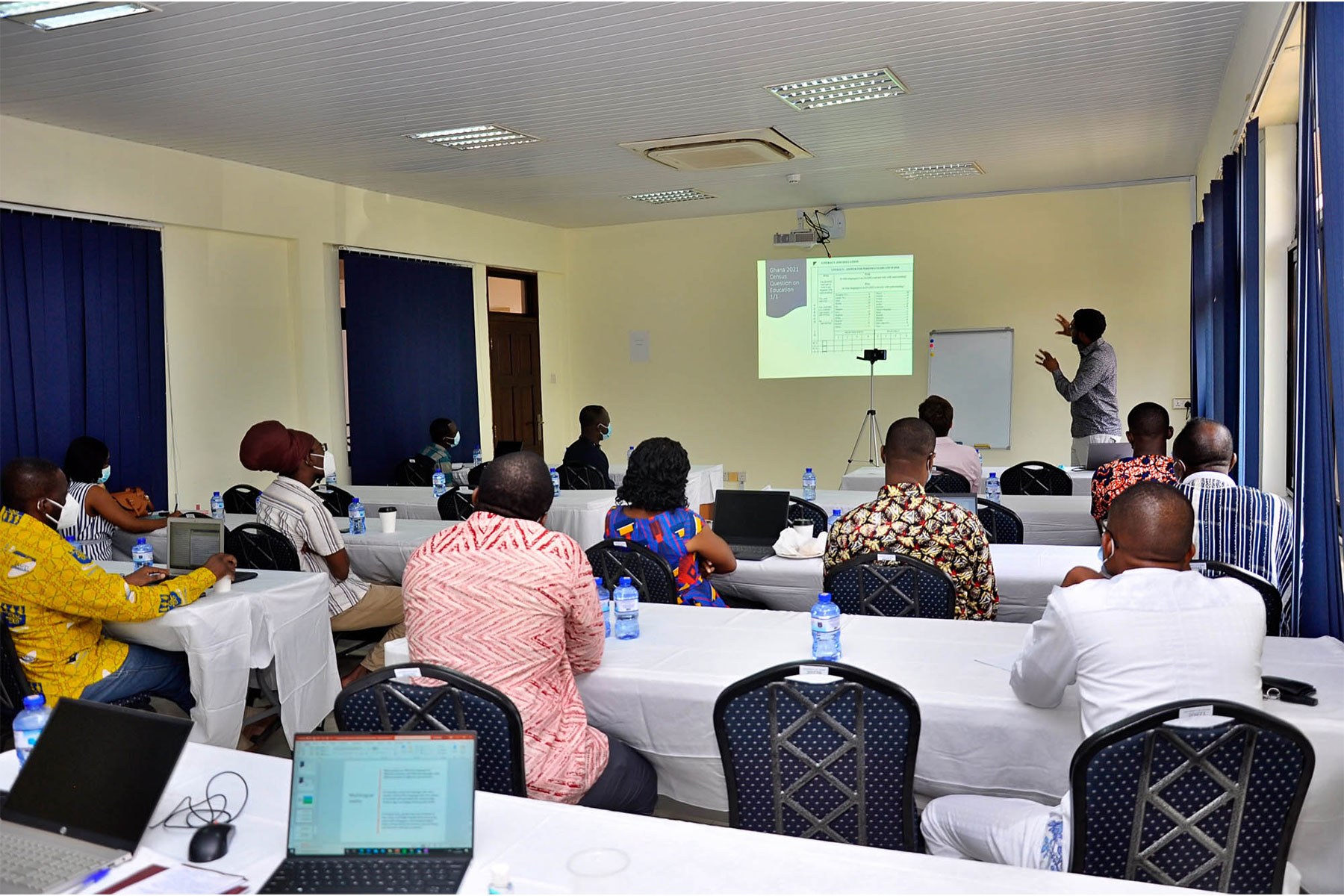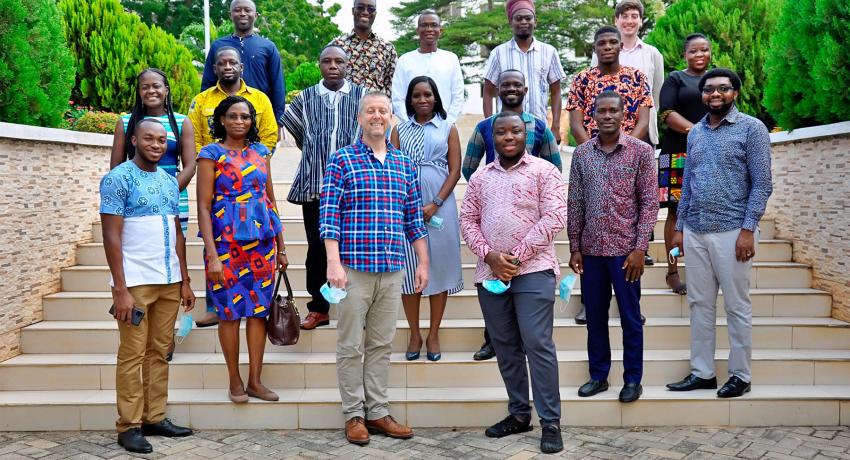Participants in a group photo after the workshop
Participants in a group photo after the workshop
A new study, “Language, livelihoods and well-being in multilingual countries: Evidence from Ghana” has identified language skills and multilingualism as important attributes that have implications for key socio-economic and health outcomes of people in Ghana.
In a recent workshop organised by the International Growth Centre (IGC), the researchers noted that Ghana, like most sub-Saharan African (SSA) countries, is characterised by high multilingualism and ethnic diversity. They argued that while it is generally believed that speaking more languages is always an asset, there is limited empirical research that demonstrates this fact in the SSA context. There are no studies that have explored the role, importance, and value of multilingualism quantitatively in Ghana where, in apart from English (the official language), most people also speak one or two indigenous languages.
The presentations summed that: “by garnering evidence on the relevance of language and language skills for livelihoods, health and wellbeing, this study is helping bridge the knowledge gap while providing data to support evidence-based policymaking which is critical for fostering inclusive societies”.
The study was undertaken by a multidisciplinary team of researchers from the IGC, ISSER, KNUST, the University of Glasgow and the Autonomous University of Barcelona. The research team including Dr Kristinn Hermannsson (University of Glasgow), Dr Henry Telli and Dr Simon Bawakyillenuo (ISSER) presented their findings at a dissemination workshop which was held at the ISSER Conference Facility on 15 October 2021.

Findings
Findings of the study, which examined three sub-themes: multilingualism and labour market outcomes in Ghana; language, health and wellbeing; and language and education, provides some empirical evidence to strongly suggest that language skills and multilingualism are important attributes that have implications for key socio-economic and health outcomes of people in Ghana.
The results show that being able to speak several indigenous languages in the Ghanaian context is more valuable than often perceived. Thus, while English is important as an official language, being able to speak only English is not sufficient for one to live and work in Ghana without being considerably excluded or disadvantaged.
The study also points to severe shortcomings in the way language skills are captured in survey data and proposes better ways of capturing language skills in future surveys, among other recommendations.
Recommendations
On the basis of the findings, the study proposes that Ghana’s education policy should actively encourage the use of indigenous languages in the school environment, going beyond the current language policy of education for early childhood education which limits the use of familiar government-sponsored languages for academic instruction to the first five years of schooling (from Kindergarten to Primary 3) only.
As regards multilingualism data, the study urges that household surveys should do a better job of capturing and measuring people’s language skills through improved survey questions and techniques to allow for more accurate estimates of the value of language skills in Ghana’s highly multilingual context.
Workshop participants
Present at the workshop were members of the research project team, as well as representatives from the Ghana Education Service, the Ghana Health Service, the Ministry of Employment and Labour Relations, the Ministry of Education, the Ghana Statistical Service, the University of Ghana and ISSER.
The “Language, livelihoods and well-being in multilingual countries: Evidence from Ghana” project is implemented with the funding support of the Scottish Funding Council and the Global Challenges Research Fund (GCRF).
Tags:
- Log in to post comments

